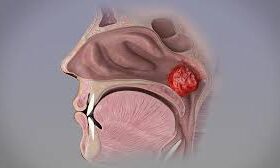Neurological disorders are increasingly recognized as a leading cause of global illness and disability. In this article, we examine Doctorhub360.com neurological diseases, highlighting the latest understanding, diagnostic methods, therapies, and patient support that this platform provides. Through this deep dive, you will see how Doctorhub360.com can serve as a reliable tool in navigating complex neurological health issues.
Why Focus on Doctorhub360.com Neurological Diseases?
From the outset, Doctorhub360.com neurological diseases represents a specialized segment of digital health that curates neurologic knowledge and connects users to relevant care. The aim is clear: bridge medical science and patient understanding in a field where early recognition and customized management often change outcomes. By placing the keyword strategically here, we emphasize its centrality to this article.
Global Neurological Burden: The Latest Landscape
Neurological conditions are not rare—they now account for one of the largest burdens in global disease statistics. According to the World Health Organization’s Global Status Report on Neurology, neurological disorders are responsible for over 11 million deaths annually and afflict more than 40% of the global population at some point in life. World Health Organization Many countries still lack national policies or adequate infrastructure to manage this growing challenge. World Health Organization
In parallel, medical research is advancing rapidly. For instance:
-
A new blood test offering earlier detection of amyotrophic lateral sclerosis (ALS) has emerged, holding promise for future diagnostics. The Times of India
-
A novel ultrasound helmet engineered by University College London and Oxford researchers may noninvasively reach deep brain structures, potentially transforming treatments for Parkinson’s and other brain disorders. Popular Mechanics
-
Large-scale proteomics studies are unveiling molecular markers linked to Alzheimer’s and Parkinson’s, hinting at earlier detection and targeted therapies. Financial Times
Within this evolving context, Doctorhub360.com neurological diseases aims to remain current, translating cutting-edge discoveries into accessible guidance.
Core Categories Covered by Doctorhub360.com Neurological Diseases
Doctorhub360.com’s neurological diseases section organizes content across a spectrum of brain and nervous system disorders. Some of the principal categories include:
-
Neurodegenerative disorders — Alzheimer’s disease, Parkinson’s disease, Huntington’s disease, ALS
-
Demyelinating diseases — Multiple sclerosis, neuromyelitis optica
-
Seizure and epileptic disorders
-
Cerebrovascular diseases — Stroke, transient ischemic attack (TIA), vascular dementia
-
Headache and migraine syndromes
-
Neuromuscular & peripheral nerve disorders — Peripheral neuropathy, myasthenia gravis, Guillain–Barré syndrome
-
Rare & genetic neurological conditions — Leukodystrophies, ataxias, metabolic brain diseases
For example, Hopkins Medicine lists a broad roster of neurological conditions, spanning from spinal cord injury to Bell’s palsy, brain tumors, and movement disorders. Johns Hopkins Medicine Doctorhub360.com neurological diseases draws on this diversity to provide both broad and deep coverage.
Key Symptoms, Risk Factors & Alerts
A central purpose of presenting Doctorhub360.com neurological diseases is to educate users on warning signs and risk profiles. Some critical red flags include:
-
Sudden onset of weakness or numbness (especially one side of body)
-
Persistent or worsening headaches unresponsive to usual treatments
-
Seizures, convulsions, or unexplained episodes of altered consciousness
-
Speech, vision, or swallowing difficulties
-
Memory lapses, confusion, or personality changes
-
Tremors, balance issues, or involuntary movements
-
Chronic fatigue, sleep disruption, or autonomic symptoms (e.g. blood pressure swings)
Risk factors span age, genetic predisposition, vascular disease (hypertension, diabetes, hyperlipidemia), smoking or substance use, infectious or autoimmune exposures, and traumatic brain injury.
Doctorhub360.com neurological diseases often embeds risk calculators and symptom checklists so that users may assess when medical consultation is warranted.
Diagnostic Strategies Emphasized on Doctorhub360.com
Accurate diagnosis in neurology typically requires layering clinical evaluation, advanced imaging, laboratory testing, and specialized assessments. The way Doctorhub360.com neurological diseases presents these tools is structured and user-friendly.
Clinical Evaluation & Neurological Examination
Every neurological diagnosis must begin with history taking and a physical exam. Doctorhub360.com neurological diseases outlines which signs to check: reflexes, motor strength, gait, cranial nerves, cognitive screening, sensation, coordination, balance, and autonomic function.
Neuroimaging: MRI, CT, PET
Magnetic Resonance Imaging (MRI) is the go-to for most brain and spinal cord evaluations. Computed Tomography (CT) may be used in emergencies (e.g., hemorrhage). Positron Emission Tomography (PET) scans or functional MRI can help in metabolic or degenerative neurologic disease detection.
Electrophysiological Testing
-
Electroencephalography (EEG) for detecting abnormal brain electrical activity (e.g. epilepsy)
-
Nerve conduction studies (NCS) and electromyography (EMG) for peripheral nerve and muscle disorders
-
Evoked potentials for assessing conduction through sensory pathways (e.g. in multiple sclerosis)
Cerebrospinal Fluid & Biomarkers
Through lumbar puncture (spinal tap), the cerebrospinal fluid (CSF) is analyzed for proteins, immune markers, infectious agents, or disease-specific biomarkers (e.g., oligoclonal bands in MS). Genetic testing and blood biomarkers (e.g. neurofilament light chain) are increasingly featured in Doctorhub360.com neurological diseases content.
Neuropsychological & Functional Testing
For disorders that impact cognition and behavior, formal neuropsychological batteries measure memory, attention, executive function, language, and mood.
The platform often illustrates typical diagnostic flowcharts specific to each disease, helping users visualize “what comes next” in evaluation.
Treatment Modalities and Innovations Highlighted
In the Doctorhub360.com neurological diseases section, treatments are not only presented—they are contextualized, with pros, cons, and future directions.
Medications & Disease-Modifying Therapies
-
Alzheimer’s disease: cholinesterase inhibitors (donepezil, rivastigmine), memantine
-
Parkinson’s disease: levodopa, dopamine agonists, MAO-B inhibitors, COMT inhibitors
-
Multiple sclerosis: injectables (interferons), monoclonal antibodies (ocrelizumab, natalizumab), oral agents
-
Epilepsy: a broad arsenal of antiseizure medications (e.g., levetiracetam, lamotrigine, valproate)
Side effect profiles, dosage adjustments, interactions, and monitoring protocols are all clearly delineated.
Surgical & Device-Based Interventions
-
Deep Brain Stimulation (DBS) for Parkinson’s, dystonia, and essential tremor
-
Vagus Nerve Stimulation (VNS) and Responsive Neurostimulation (RNS) in epilepsy
-
Neurosurgical resection or lesion-targeted treatments (e.g. tumors, vascular malformations)
-
Spinal cord stimulation or intrathecal pumps for pain syndromes
Through Doctorhub360.com neurological diseases, users can access case studies, criteria for eligibility, success rates, and risks.
Rehabilitation & Supportive Therapies
Recovery and adaptation play an essential role in neurological care:
-
Physical therapy, gait training, balance exercises
-
Occupational therapy for daily living tasks
-
Speech and swallowing rehabilitation
-
Cognitive therapy, memory training, behavioral therapy
-
Psychological counseling, mindfulness, and mental health support
The platform often supplies one-page guides or weekly regimen templates tailored by condition.
Lifestyle, Prevention & Modifiable Strategies
Doctorhub360.com strongly emphasizes non-pharmacologic measures:
-
Diet: anti-inflammatory diets, Mediterranean pattern, omega-3 fatty acids
-
Exercise regimens: aerobic, strength, neuromotor training
-
Sleep hygiene strategies and circadian alignment
-
Cardiovascular risk factor control (blood pressure, cholesterol, diabetes)
-
Smoking cessation, limiting alcohol, stress reduction
These strategies serve in disease prevention, slowing progression, and managing comorbidities.
Emerging, Experimental & AI-Assisted Therapies
To keep up with the research frontier, Doctorhub360.com neurological diseases also covers areas such as:
-
Gene therapy and viral vector delivery
-
Stem cell therapy and neural precursor transplantation
-
Biomarker-guided precision therapeutics
-
Brain–computer interfaces and neuroprosthetics
-
AI and generative models in neurology (e.g., using large language models to integrate patient data and guide decision-making) arXiv
-
Advanced imaging quantification protocols like IRONMAP for tracking iron changes in MS and other diseases. arXiv
These insights help readers remain aware of the next generation of possibilities.
How Doctorhub360.com Supports Patients & Clinicians
One of the strengths of the Doctorhub360.com neurological diseases domain is its design as a two-way bridge between medical expertise and patient empowerment.
Educational Resources and Multimedia
-
Illustrated glossaries, infographics, video explainers
-
Layperson summaries of research studies
-
Condition-specific FAQs, checklists, and decision aids
-
Webinars and interactive Q&A sessions
Telehealth, Specialist Directory & Consultations
Doctorhub360.com integrates a system that allows users to:
-
Search for neurologists or subspecialists
-
Book remote (virtual) consults
-
Share medical records, imaging, and reports securely
-
Receive follow-up care and management plans remotely
Community, Peer Support, & Caregiver Tools
Living with neurological disease is rarely a solo journey. Doctorhub360.com neurological diseases often feature:
-
Patient stories and testimonials
-
Forums and moderated discussion groups
-
Caregiver guides, stress management resources, and support toolkits
-
Regular updates and newsletters on emerging therapies
By doing so, users feel less isolated and more informed in their decisions.
Strengths, Constraints & Ethical Issues
While Doctorhub360.com neurological diseases aims for high utility, it must navigate several limitations:
-
Not a substitute for in-person medical care: The site provides informational support—but actual diagnosis and treatment require real-world evaluation.
-
Risk of misunderstanding or misapplication: Lay users may misinterpret technical content or apply it incorrectly without oversight.
-
Data security and privacy: Handling sensitive neurological health data demands strong encryption, ethical consent, and transparency.
-
Updating at pace: The field of neurology is dynamic; keeping content current is resource-intensive.
-
Bias and equity: Ensuring content is relevant for diverse populations (cultural, linguistic, socioeconomic) is a challenge.
-
Balancing hope vs realism: Reporting on experimental therapies must avoid overstating benefits or misleading vulnerable users.
By openly acknowledging these constraints, Doctorhub360.com neurological diseases can maintain trust and credibility.
Future Outlook & Strategic Enhancements
Here are some directions where Doctorhub360.com neurological diseases could evolve further:
-
Integrating predictive AI engines that analyze symptom patterns and flag high-risk users
-
Personalized patient dashboards integrating genomic, imaging, and biomarker data
-
Wearable sensor platforms that feed continuous neurological signals into care systems
-
Virtual reality (VR) & augmented reality (AR) rehabilitation modules
-
Multilingual expansion and localization to capture underserved geographies
-
Research partnerships & registries to feed anonymized data into global neuroscience efforts
-
User-driven evolution: soliciting feedback loops from patients and caregivers to refine content
In doing so, Doctorhub360.com neurological diseases may become not just an information portal but a living health ecosystem.
Summary & Final Thoughts
Neurological diseases impose a vast and growing burden worldwide, touching motor function, cognition, sensation, autonomy, and quality of life. In this complex domain, a platform like Doctorhub360.com neurological diseases offers value by:
-
Centralizing up-to-date, expert-reviewed neurological content
-
Guiding users through symptom recognition, diagnostics, and treatment options
-
Enabling teleconsultation, knowledge access, and patient support
-
Bridging cutting-edge research with real-world usability
Yet, it must always remain grounded—emphasizing that real medical care and personalized clinical judgment lie at the heart of neurological health. By combining clarity, relevance, transparency, and compassionate design, Doctorhub360.com neurological diseases can serve as a meaningful companion in the journey toward better brain health.
If you like, I can also generate a more region-specific version (e.g. for Pakistan or South Asia), or a blog friendly “Top 5 Neurological Challenges & How Doctorhub360.com Addresses Them.” Would you like that next?








Leave a Reply